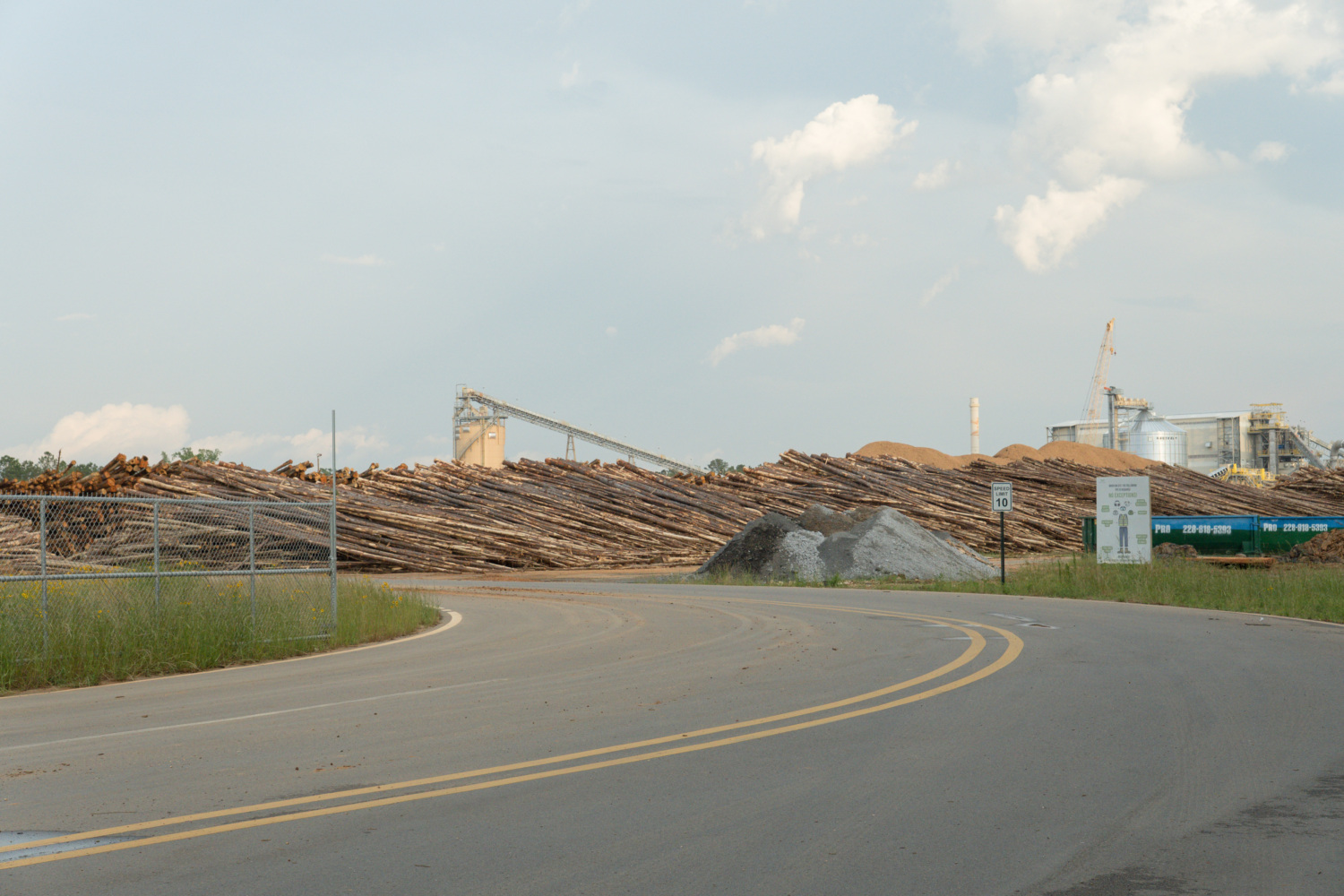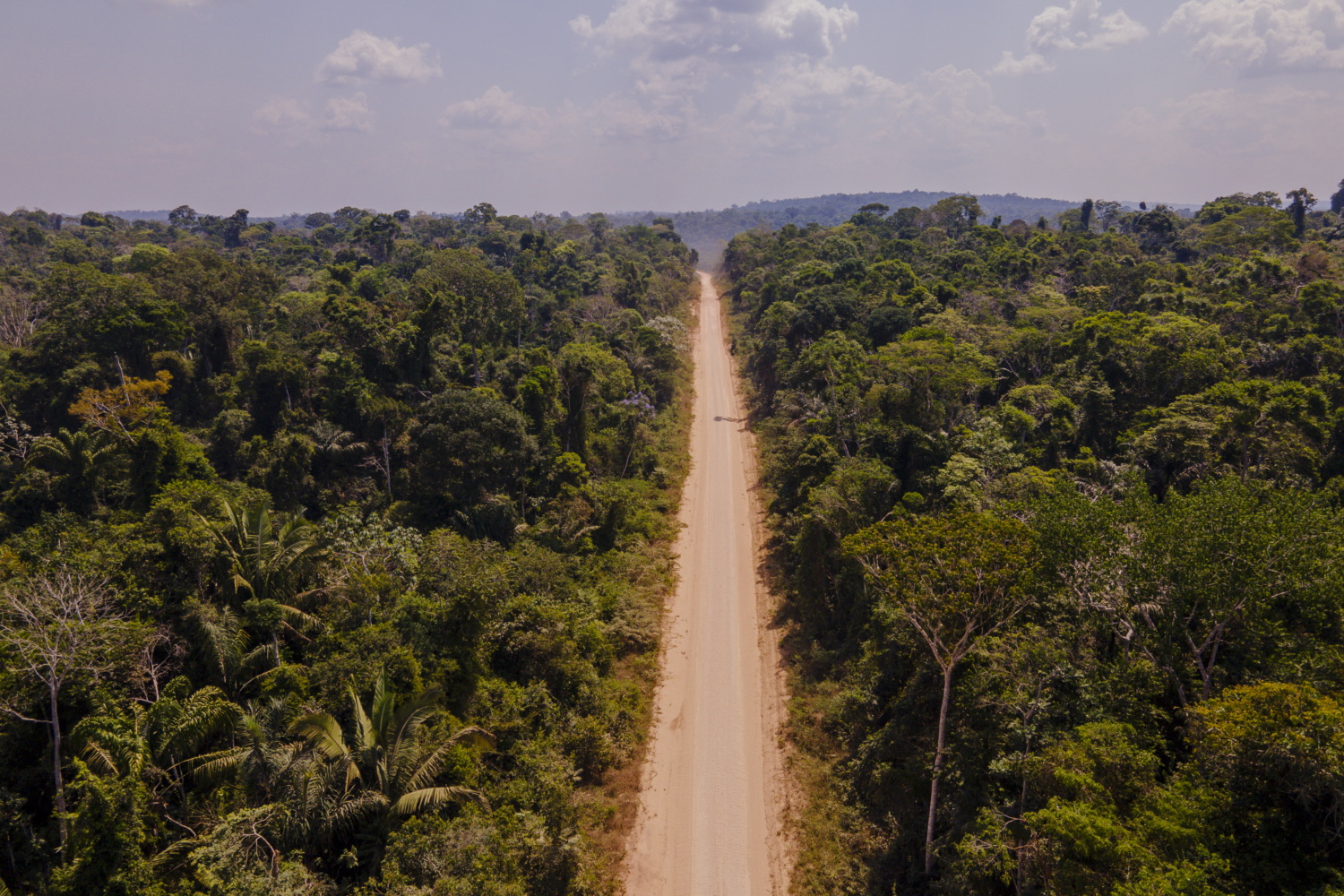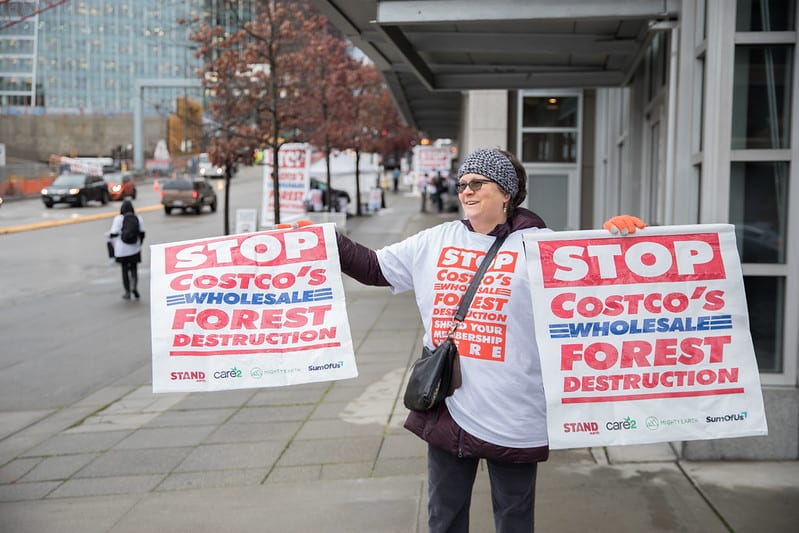
In 2020, Retailers Must Stop Stocking Environmental Destruction
When customers go grocery shopping, they expect to find quality products that will feed their families and are produced in legal and responsible ways. Yet many supermarkets are buying products from some of the most environmentally destructive suppliers on the planet. Leading retailers are stocking meat from JBS, Tyson, and Cargill, all of which have long track records of environmental destruction and human rights abuses- from destruction of tropical forests and indigenous communities across Latin America to water pollution and soil erosion causing a massive Dead Zone in the Gulf. Supermarkets largely dictate the kinds of food that people have access to, and their buying decisions can therefore mean the difference between healthy ecosystems and ecological destruction.
Supermarket retailers have spent decades building trust in the communities they serve. But their willingness to turn a blind eye to pollution and deforestation now threatens the customer trust that is core to success. In fact, 81 percent of respondents in a recent poll said that knowing about a company’s environmentally irresponsible business practices would make them less likely to purchase their products.
With the global environment in a state of deep crisis, Mighty Earth is calling for supermarkets to implement robust policies around deforestation, native ecosystem clearing, regenerative farming and water pollution, and to drop contracts with the worst offenders like Cargill. Mighty Earth’s 2020 campaign to hold these retailers accountable is off to an exciting start.
National Retail Federation
On January 11, the National Retail Federation held the opening ball to its annual “Big Show.” With 38,000 retail professionals in attendance, this trade show is quite literally the largest retail conference on the planet. Mighty Earth volunteers in New York City took the opportunity to call on Stop & Shop and parent company Ahold Delhaize to cut contracts with Cargill, taking center stage at the opening banquet and engaging conference participants in a variety of creative ways.
A video of their speech can be found here:
Costco Shareholder Meeting
Costco is so big that the sourcing decisions made there can literally move entire markets and shape whole industries. Costco brands itself as an eco-conscious company suitable for families who value protecting the planet- yet all the while selling products that do just the opposite. According to Bloomberg research, Costco’s top suppliers include JBS, Cargill, and Tyson- while tissue paper sold through the Charmin, Bounty, and Kirkland brand is made from 100% virgin fiber sourced from Canada’s Boreal forests.
Together with NRDC, SumOfUs, and Stand.Earth, we attended Costco’s shareholder meeting to call on Costco to adopt strong sustainability policies that ban destruction of native forests and require sustainable agricultural practices throughout its supply chain.
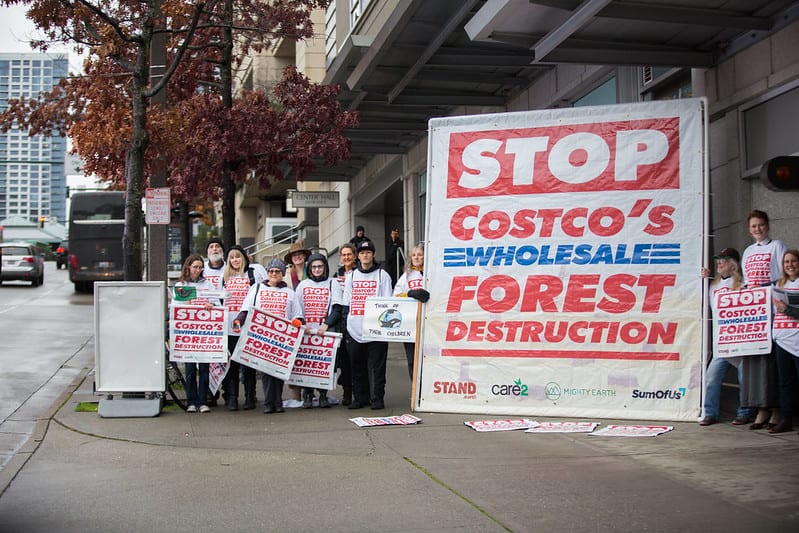
At the shareholder meeting, we turned up with over a dozen volunteers who rallied on the sidewalk, distributed literature, and highlighted Costco’s record to hundreds of shareholders as they drove in. Some of the volunteers even got creative and put up a light projection on the outside of the shareholder meeting. More than 100,000 people have signed petitions over the past year calling on Costco to protect forests, which we delivered to Costco’s CEO.
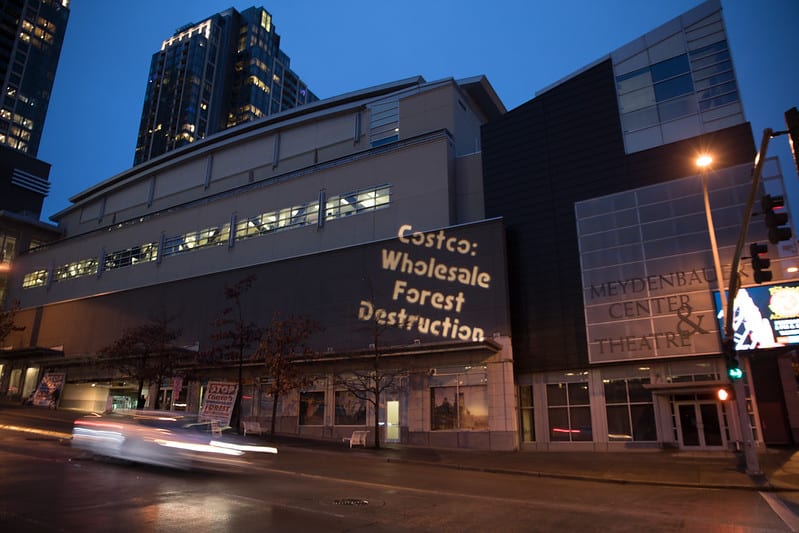
Stop & Shop
Stop & Shop, a popular East Coast supermarket chain owned by parent company Ahold Delhaize, has also been feeling the heat for its business partnerships with Cargill that are funding widespread destruction of tropical forests and pollution of American waterways. While claiming to be committed to sustainability, Stop & Shop recently signed a contract with Cargill to open a meat processing facility that will supply poultry to Stop & Shop stores.
Mighty Earth partnered with Green Corps to lead a hard-hitting campaign in Stop & Shop home state of Massachusetts. Field organizers have hit the ground running- educating shoppers, gathering petitions, and hosting community events to call on Stop & Shop to cut ties with Cargill and to adopt strict sustainability policies banning destruction of native forests and requiring more sustainable farming practices for all their meat suppliers.
[aesop_gallery id=”61047″ revealfx=”off” overlay_revealfx=”off”]
